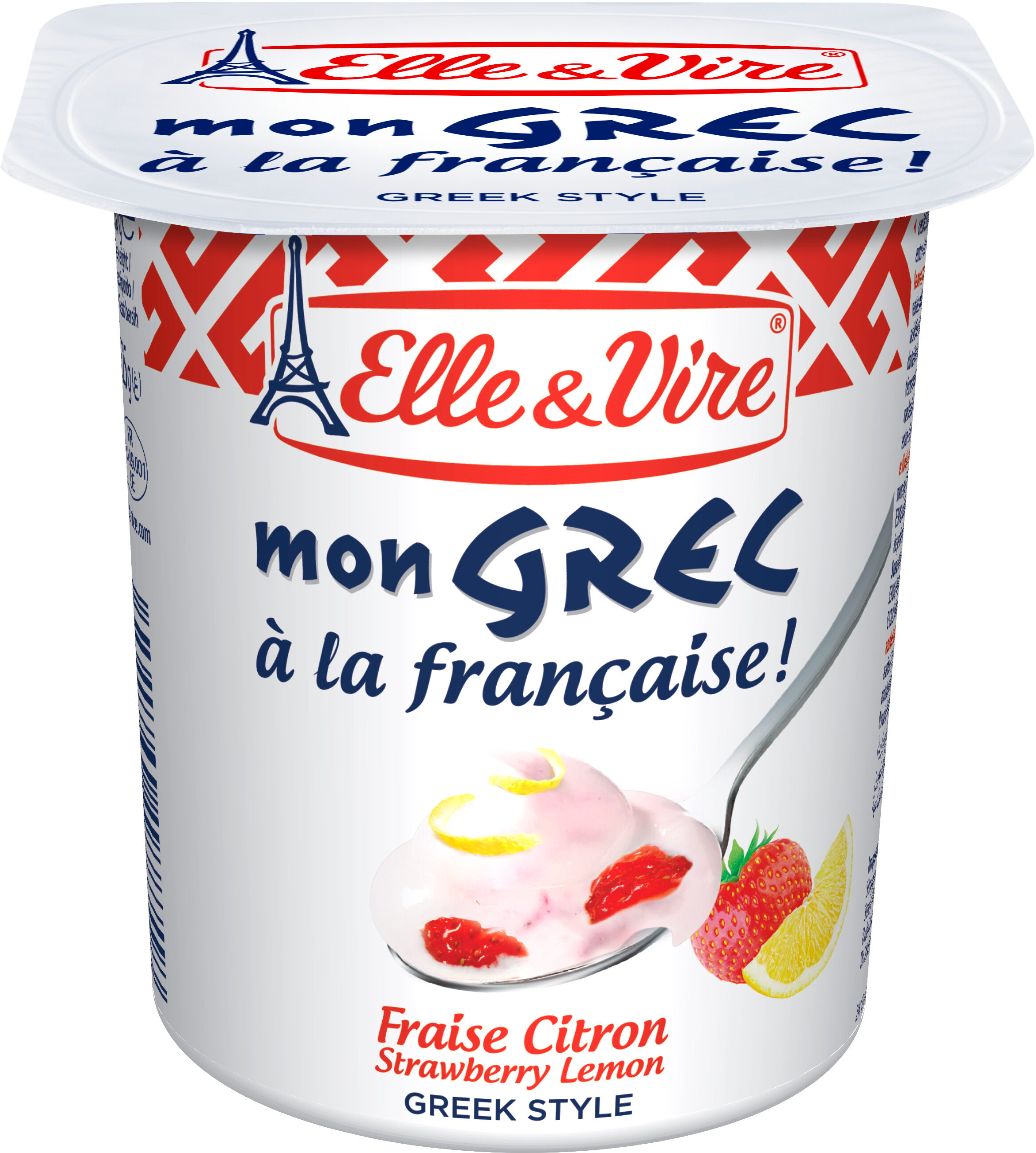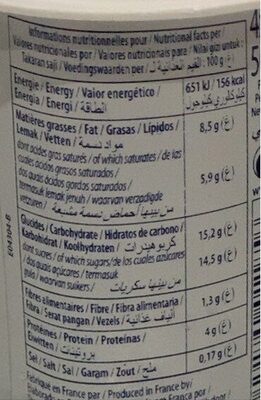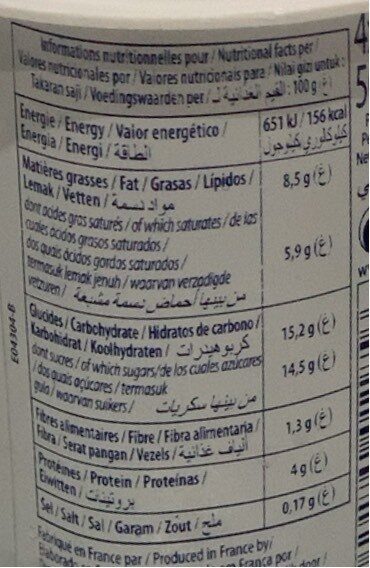Dairy dessert Mon Grec - Strawberry and lemon - Elle & Vire - 4 x 125 g
This product page is not complete. You can help to complete it by editing it and adding more data from the photos we have, or by taking more photos using the app for Android or iPhone/iPad. Thank you!
×
Some of the data for this product has been provided directly by the manufacturer Elle&Vire.
Barcode: 3451790011856 (EAN / EAN-13)
Common name: Dairy dessert Mon Grec with Strawberry and lemon
Quantity: 4 x 125 g
Packaging: Fresh, fr:Opercule matériau composite et étiquette papier, fr:Pot plastique
Brands: Elle & Vire, Savencia, Elle&Vire International
Brand owner: Savencia
Categories: Dairies, Fermented foods, Fermented milk products, Desserts, Dairy desserts, Fermented dairy desserts, Yogurts, Greek-style yogurts
Labels, certifications, awards:
Green Dot, Made in France
Origin of the product and/or its ingredients: France
Origin of ingredients: France
Manufacturing or processing places: Normandie, France
Traceability code: FR 50.139.001 CE - Condé-sur-Vire (Manche, France)
Link to the product page on the official site of the producer: https://www.elle-et-vire.com/en/produits...
Stores: Toutes enseignes GMS
Matching with your preferences
Environment
Carbon footprint
Packaging
Transportation
Other information
Preparation: Meilleur servi frais
Conservation conditions: Entre +2 et +6°C maximum
Recycling instructions - To discard: 4 pots plastique 125G à jeter, 1 opercule matériau composite à jeter
Customer service: 0969395409
Report a problem
Data sources
Product added on by kiliweb
Last edit of product page on by teolemon.
Product page also edited by geodata, openfoodfacts-contributors, org-elle-vire, packbot, roboto-app, scanbot, spotter, yuka.EKxBLdOTA-oeGMXt4JwPjBvkJsjEANoDQVEhog, yuka.FbRcZPCaGusOBcfJ0Nls3ROgHcrrI_VwO18jow, yuka.JL5QMMeuH-EHPffM644ZxWGENdrPKKF5QEwIoQ, yuka.LuoSZdyRNOgaGPbg2JsfgAeAOsj6OPNkAlRTog, yuka.WGJzbVAvaFErZElWbWZNWTRraUtwZkJXbnJta1IxdTZON2NTSVE9PQ, yuka.Wkt3NkV2dzhpY1VybThJVW9CS08wWTVUNUpTZ2ZqbXROdGdCSVE9PQ, yuka.sY2b0xO6T85zoF3NwEKvlhF5aILfsDTpZwXkmEa57_HRK523WvZj69nVLKs, yuka.sY2b0xO6T85zoF3NwEKvlhNAV_P3sxbHCyz5w2iux82xDK3tXvMixrLUb6o, yuka.sY2b0xO6T85zoF3NwEKvlldGX-fHoxfAHDbvwFazwPOAco7rQd5R4qrbK6g, yuka.sY2b0xO6T85zoF3NwEKvlmhYVf3PnCzKHRzvnHLQzcagLKXKXNpg4KnUMqs.











